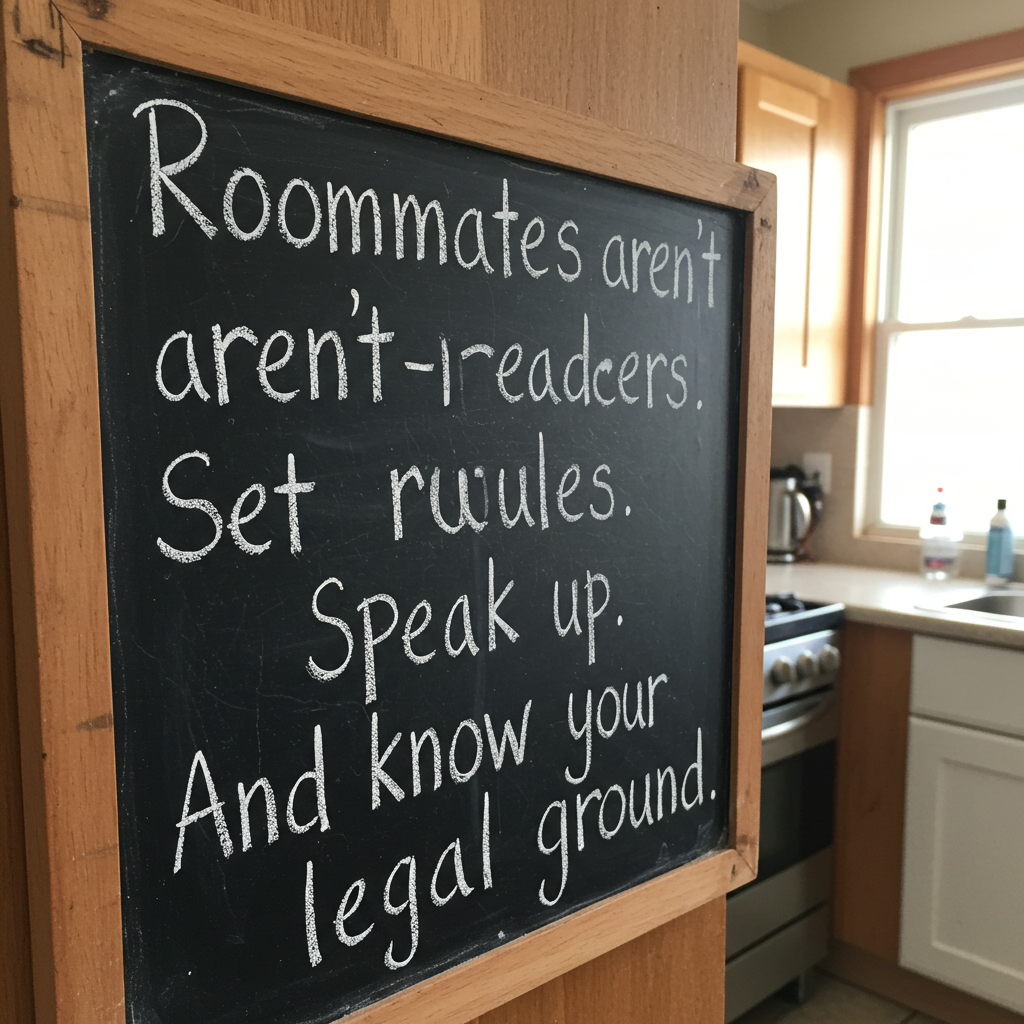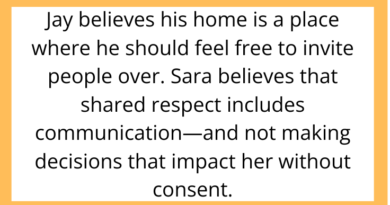AITAH for Kicking Out My Roommate After She Brought Her Boyfriend to Live with Us Without Asking?
When it comes to shared living spaces, boundaries are everything. But what happens when a roommate crosses the line and turns your home into something you never agreed to? In this AITAH-inspired scenario, we explore the fallout when one roommate makes a major decision—and the other decides they’ve had enough.
Let’s break it down.

The Situation: A Surprise New Roommate
A 26-year-old woman—let’s call her Sara—shared her story on Reddit’s AITAH forum. She and her college friend Mia had been roommates for two years, sharing a rented two-bedroom apartment. The arrangement worked well, and Sara considered Mia a close friend.
But everything changed when Mia’s boyfriend, Kevin, lost his job and was “temporarily” without a place to stay.
Without asking Sara first, Mia invited Kevin to move in.
At first, Sara tried to be understanding. She assumed it would be a few days, maybe a week at most. But Kevin kept staying. Days turned into weeks, and it became clear that Mia had no intention of asking him to leave anytime soon.
The Breaking Point: An Uninvited Third Wheel

What made the situation worse was Kevin’s presence in every corner of the apartment. He worked from home, used the shared Wi-Fi, and even helped himself to food and utilities—all without ever contributing financially.
Sara confronted Mia, asking if Kevin would be paying rent or utilities. Mia dodged the question and said he was “still figuring things out.”
Sara gave her an ultimatum: either Kevin starts paying his share, or he moves out.
Mia responded with outrage. She accused Sara of being heartless, unsupportive, and jealous of her relationship.
So Sara gave Kevin two weeks to leave. When he didn’t, she contacted the landlord, who confirmed that Kevin wasn’t on the lease and had no legal right to stay. With the landlord’s support, Sara had Kevin removed.
Now Mia is furious and won’t speak to her. Sara turned to Reddit for answers: AITAH for kicking out my roommate’s boyfriend after she let him move in without asking me?
The Core Issue: Consent and Communication

Sara’s Perspective: Respect the Lease, Respect the Space
Sara signed a lease with Mia—not Mia and her boyfriend. It’s her legal and personal right to know who is living in her home, especially when that person is using shared resources and creating tension.
Mia’s failure to communicate or ask permission shows a major lack of respect. Even if Kevin was going through a tough time, that didn’t give Mia the right to make unilateral decisions that affected Sara’s living situation.
Roommates need to make decisions together—not unilaterally.
Mia’s Perspective: Support and Compassion
From Mia’s side, she likely felt cornered. Her boyfriend was in need, and she wanted to help. Perhaps she assumed Sara would understand, or thought Kevin’s presence wouldn’t be a big deal.
Mia might have seen Sara’s stance as cold or inflexible—choosing rules over empathy.
But even compassion requires consent. And assuming your roommate will quietly accept a third person moving in full-time is a risky bet.
Reddit’s Verdict: Firm Boundaries Win

The AITAH community had a strong response—and most sided with Sara.
“This is your home, not a shelter,” one comment read. “No one gets to live there without your permission.”
Others pointed out the legal aspect: if Kevin wasn’t on the lease and was contributing nothing, Sara was fully within her rights to have him removed.
However, some users did suggest Sara could’ve had a longer conversation with Mia before involving the landlord. While her actions were justified, the emotional fallout might’ve been avoided with more direct communication earlier on.
Lessons in Living Together

Roommate arrangements can get complicated, especially when relationships, financial strain, or emotional loyalties enter the picture.
Here are some takeaways from this situation:
1. Set Clear House Rules
At the beginning of any roommate situation, outline expectations around guests, overnight stays, rent responsibilities, and shared spaces.
2. Communicate Before Acting
Even when boundaries are crossed, a calm conversation can often prevent a blow-up. Set deadlines. Offer solutions. But don’t let disrespect slide.
3. Know Your Legal Rights
If you’re on the lease and someone else isn’t, you likely have more power than you realize. Involving a landlord may feel extreme—but it’s often the only path when diplomacy fails.
Was Sara the Villain?

In short: no.
Kicking someone out of your shared home is a big step—but in this case, it was a justified one. Sara tried to be patient. She confronted the issue. She gave a warning. And when she was ignored, she acted.
Sometimes the right thing isn’t easy—but it is necessary.



